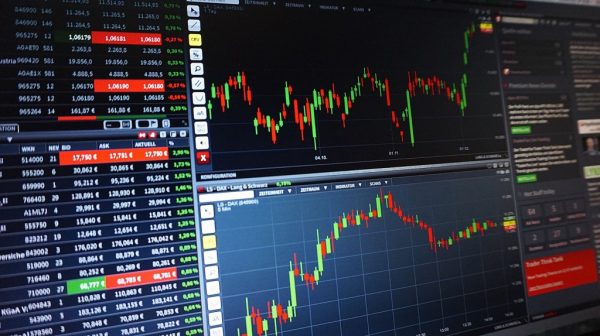Are Stocks Too Expensive to Be Valuable?

Photo credit: PIX1861, CC0 Public Domain.
A couple of months ago I started noticing all of these financial articles arguing in favor of cash liquidity. They seem to file nicely alongside all of the other articles about The Uncertainty of 2017; the ones about people avoiding major financial decisions and health insurers avoiding the possibility of risk and so on.
Here’s what I wrote in March:
Another Expert Is in Favor of Cash Liquidity
It doesn’t take too much reading between the lines to guess that we’re on an economic upswing that might be followed by an economic downswing, and having a bucket full of cash might become valuable at that point. (When I write that, by the way, I feel like a Cash Prepper. “Put your bucket of cash next to your bucket of food!”)
But here we are, on June 13, with this MarketWatch op-ed urging us once again to consider cash. This time, it’s because stocks are too expensive to be valuable. In fact, stocks are more expensive than they’ve been at nearly every other point in history—and that isn’t a good thing.
There are only two other times in history when stocks were more expensive than today
We are having a hard time finding high-quality companies at attractive valuations.
[…]
The average stock is overvalued somewhere between tremendously and enormously. If you don’t know whether “enormously” is greater than “tremendously” or vice versa, don’t worry, we don’t know either. But this is our point exactly: When an asset class is significantly overvalued and continues to get overvalued, quantifying its overvaluation brings little value.
They’re using the term “valuation” in a slightly different way than I used the term “valuable” above, but the point is the same: buying stocks right now might not be worth it. Especially when you consider historical precedent:
There are only two other times in history that stocks were more expensive than they are today: just before the Great Depression hit and in the 1999 run-up to the dot-com bubble’s bursting.
Great.
The rest of the op-ed is about what might happen next—“nobody knows”—and the assumption that the stock market will have some kind of drop or crash or “roll over” in the future. Consider putting more money in cash, and keep looking for “high-quality companies that are undervalued.”
Which sounds kind of like looking for that perfect small city with a low cost of living and multiple job opportunities, or that overlooked apartment with affordable rent.
But maybe stocks are different. After all—as I’ve proven on The Billfold many times before—I’m not an investment expert.
Support The Billfold
The Billfold continues to exist thanks to support from our readers. Help us continue to do our work by making a monthly pledge on Patreon or a one-time-only contribution through PayPal.
Comments